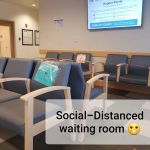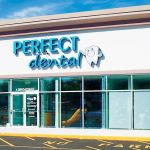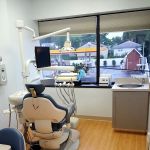How to Recognize and Prevent Oral Cancer Early
Oral cancer is one of the most preventable yet underdiagnosed forms of cancer. When detected early, it can be treated effectively, potentially saving lives. As a person who cares deeply about your health, you must be aware of how to recognize and prevent oral cancer early. I’ve learned a lot over the years, and through this article, I want to share essential tips and insights that could help you or someone you love avoid the devastating consequences of this disease.
Understanding Oral Cancer: A Personal Journey
Oral cancer refers to cancers that develop in any part of the mouth, including the lips, tongue, cheeks, gums, roof and floor of the mouth, and throat. It’s often associated with factors like smoking, heavy alcohol consumption, and a poor diet. However, the disease can affect anyone, regardless of lifestyle choices.
Not long ago, a close friend of mine was diagnosed with oral cancer after years of noticing small changes in his mouth. He had a persistent sore that didn’t heal and some difficulty swallowing. Unfortunately, he ignored the signs until they became much more serious. This experience taught me how important it is to recognize early symptoms and seek help promptly. Early detection can make a world of difference!
Warning Signs of Oral Cancer: How to Spot Them Early
As someone who’s passionate about spreading awareness, let me walk you through the most common signs of oral cancer. These may appear harmless at first, but it’s crucial to pay attention to even the smallest changes in your mouth.
- Persistent Mouth Sores: One of the most common early signs of oral cancer is a sore in the mouth that doesn’t heal after two weeks. If you notice a lesion or ulcer that sticks around longer than expected, it’s time to see a healthcare professional.
- Red or White Patches: Red or white patches on the gums, tongue, or the inside of your cheeks are warning signs. These patches may not hurt, but they’re often precursors to cancer.
- Unexplained Bleeding: If you experience unexplained bleeding in your mouth, especially if it doesn’t stop, it could indicate a problem that needs to be addressed immediately.
- Pain or Difficulty Swallowing: Difficulty swallowing or a feeling like something is stuck in your throat may be symptoms of oral cancer. This issue can often go unnoticed, but if it persists, it should not be ignored.
- Loose Teeth or Jaw Pain: Any unusual looseness in your teeth or pain in your jaw could be linked to oral cancer, especially if it’s accompanied by other symptoms like swelling.
- Changes in Your Voice: A hoarse voice or changes in your speech may point to cancer that has spread to the throat or other areas of the mouth.
If you experience any of these symptoms, it’s vital to consult a dentist or doctor as soon as possible. They can perform a thorough exam, which might include a biopsy or other diagnostic tests to determine if cancer is present.
How to Prevent Oral Cancer: Simple Steps to Protect Your Health
Prevention is always better than cure, and the good news is that you can take several simple yet effective steps to reduce your risk of developing oral cancer. Here’s how I’ve made sure to protect myself and my loved ones:
- Quit Smoking: Smoking is one of the leading causes of oral cancer. If you smoke, quitting will significantly reduce your risk. Even if you’ve been smoking for years, it’s never too late to quit.
- Limit Alcohol Consumption: Excessive alcohol consumption increases the risk of oral cancer. Reducing or eliminating alcohol can dramatically lower your chances of developing this disease.
- Protect Your Lips from the Sun: Just like your skin, your lips are vulnerable to the sun’s harmful UV rays. Always use a lip balm with SPF to protect them.
- Maintain Good Oral Hygiene: Regular brushing, flossing, and dental checkups are essential for maintaining oral health. A dentist can identify early signs of oral cancer during routine visits, making early detection easier.
- Eat a Healthy Diet: Eating a balanced diet with plenty of fruits and vegetables can boost your immune system and help your body fight off the development of cancerous cells.
- Vaccination for HPV: Human papillomavirus (HPV) has been linked to certain types of oral cancer. Talk to your doctor about getting the HPV vaccine, especially if you’re a young adult.
What to Do If You’re at Risk
If you’re at a higher risk due to factors like smoking, heavy drinking, or age, it’s important to take extra precautions. For instance, I regularly get oral cancer screenings during my dental checkups. This simple procedure could save your life by catching any abnormalities early on. It’s a fast, non-invasive way to detect any issues before they become serious.
One of the most inspiring stories I’ve come across is that of a woman named Mary, who caught her oral cancer early through a routine dental checkup. She had been feeling fine but decided to get checked because of her family history of the disease. Her dentist noticed a small lump during the exam, which led to further testing. Thankfully, because the cancer was caught early, Mary was able to receive treatment and is now in remission. This could be you too! Early detection saves lives.
Conclusion: Stay Vigilant, Stay Healthy
Oral cancer is a serious but preventable disease. By staying vigilant, recognizing the signs early, and following prevention strategies, we can significantly reduce the risks associated with it. I encourage you to adopt these practices in your daily life and share this information with your loved ones. Together, we can help raise awareness and prevent oral cancer from claiming any more lives.
Remember, if you notice any changes in your mouth or experience any of the symptoms discussed, don't wait—visit your dentist or healthcare provider as soon as possible. Your health is too important to ignore!
For more advice and tips on maintaining good oral health, visit Dentistry Toothtruth for professional dental services and expert recommendations.







 Community Health Center of Snohomish County - Everett-North Clinic4.0 (960 review)
Community Health Center of Snohomish County - Everett-North Clinic4.0 (960 review) Red and Ritchey Orthodontics - Joliet5.0 (418 review)
Red and Ritchey Orthodontics - Joliet5.0 (418 review) Rockport Family Dental4.0 (191 review)
Rockport Family Dental4.0 (191 review) Perfect Dental - Methuen4.0 (678 review)
Perfect Dental - Methuen4.0 (678 review) International Dental of Joliet4.0 (93 review)
International Dental of Joliet4.0 (93 review) Le Pera Daniel DMD4.0 (72 review)
Le Pera Daniel DMD4.0 (72 review) The Importance of Oral Health Education During Pregnancy for a Healthy Pregnancy
The Importance of Oral Health Education During Pregnancy for a Healthy Pregnancy Best Tips for Brushing Your Teeth Properly for Healthy Gums: Essential Techniques for Oral Health
Best Tips for Brushing Your Teeth Properly for Healthy Gums: Essential Techniques for Oral Health Why Skipping Dental Checkups Can Lead to Bigger Oral Health Problems
Why Skipping Dental Checkups Can Lead to Bigger Oral Health Problems Advantages of Porcelain Dental Restorations
Advantages of Porcelain Dental Restorations How Can Diabetes Cause Tooth and Gum Problems? Preventing and Managing Oral Health Issues
How Can Diabetes Cause Tooth and Gum Problems? Preventing and Managing Oral Health Issues Healthy Habits for Promoting Good Oral Health and Hygiene: Tips for a Healthy Smile
Healthy Habits for Promoting Good Oral Health and Hygiene: Tips for a Healthy Smile